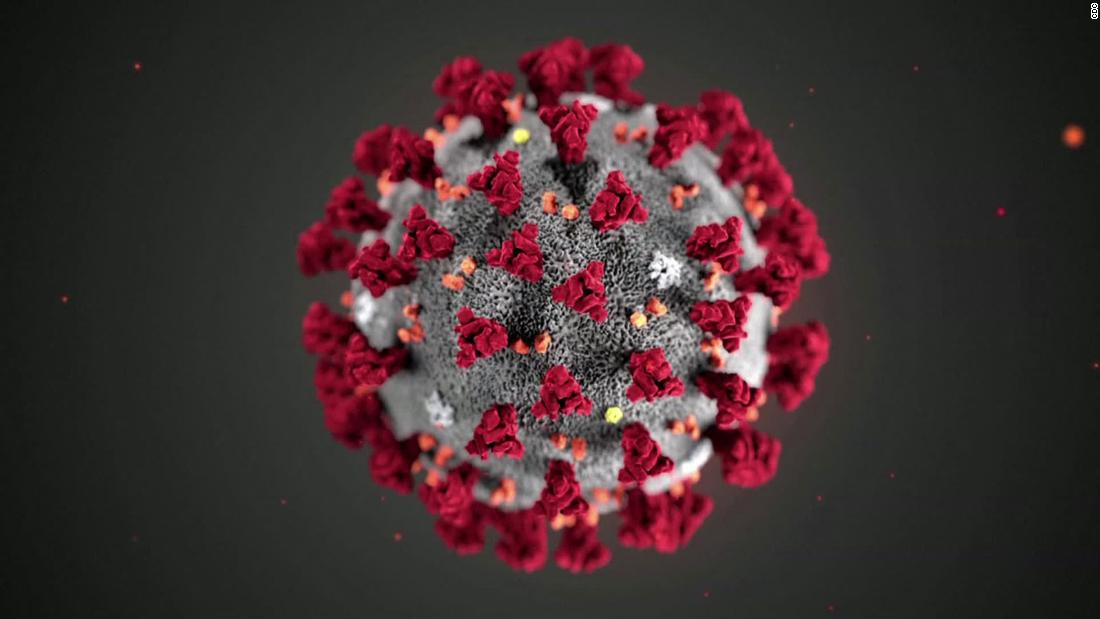St George’s receives go-ahead to use live coronavirus in lab experiments
Published: 19 June 2020
 Source: US Centers for Disease Control and Prevention
Source: US Centers for Disease Control and Prevention
St George’s, University of London has received approval from the Health and Safety Executive (HSE) to work with and amplify live coronavirus in a research environment.
Up until now, the University has been able to carry out research into Covid-19 through the use of patient samples and shared data, leading the country for urgent public health studies into coronavirus. The new permissions will allow virus strains to be supplied to the University and grown in secure laboratories for research purposes, expanding the range of studies that can be conducted.
Gaining approval for working with the virus
The Covid-19 virus is a Hazard Group 3 pathogen, meaning it is harmful and does not have available vaccines or curative treatments. St George’s already has containment laboratories in place designed to handle Hazard Group 3 pathogens, but further approvals were still required to culture coronavirus on site.
Virologist and lecturer in Global Health and the University, Dr Elisabetta Groppelli, led on plans to ensure the laboratories are ready to work with the virus and has oversight of any projects looking to use the virus. She explains that it’s not just having the appropriate facilities, but also a clear plan for experimentation.
“The most important thing is deciding what you want to do with the virus,” she says.
“You can’t just tell the HSE you want to work with the virus. You need a plan about the specific research questions and the methods you intend to use. You also need to work collaboratively with others at the University to make sure all the documentation is in place and the lab is functional.”
Following HSE feedback and approval, the final stages, which have now been completed, are making sure new equipment is set up properly and carrying out a physical inspection.
How the virus will be used
Researchers at the University intend to use the virus for a series of different studies, all at different stages of the planning process.
Dr Groppelli has teamed up with Dr Anissa Chikh to culture the virus in cells that come from blood vessels. Cardiovascular complications have emerged as significant complications in Covid-19 patients, but it is not known if the damage is the result of a direct infection of cells in the blood vessels or if it is the result of an excessive inflammatory response. By looking at how cells respond to having the virus inside them in the lab, they can then uncover what role blood vessels may have in contributing to the symptoms of coronavirus.
“Importantly, investigating the virus and blood vessels in the lab also opens up therapeutic possibilities,” say Dr Groppelli. “Because unfortunately many people suffer from cardiovascular diseases, there are drugs already in use to treat these conditions. Therefore, we aim to test these drugs, and if our informed guesses work in the lab, we can then seek to repurpose these drugs in the context of Covid-19 patients. This approach is the fastest way for research to have an impact in people.”
As well as Dr Groppelli’s efforts, researchers at St George’s are lining up to use the virus in their projects. For example, Professor Julian Ma is hoping to find out more about how antibodies in the respiratory tract might block the virus, while Professor Tariq Sadiq is looking into transmission of the virus.
The new approvals for using the virus will allow each of these projects to progress at a greater pace towards achieving their aims and ambitions.
“Some of our research projects could have an immediate impact on our clinical colleagues,” says Dr Groppelli, “because they are specifically aimed at understanding the virological risks during routine medical procedures, like gastroscopies or in dentistry settings.
“But as well as these short-term impacts, there will be fundamental research questions about how the virus works and interacts with cells. These are longer term projects but will be important as they will lay the foundations for identifying new antiviral strategies.”
The long-term outlook for the coronavirus pandemic is relatively unknown, but research such as this will help scientists and clinicians respond to the evolving situation so treatments and prevention strategies can be developed.
As well as conducting research in the laboratory, St George’s, University of London in collaboration with St George’s University Hospitals NHS Trust is working on more urgent public health studies into coronavirus than any other institute in the country, including contributing to national vaccine and treatment trials. The University has recently set up a Coronavirus Action Fund to raise money for critical research in response to the current emergency and to continue work to improve health. You can donate to the Fund here.